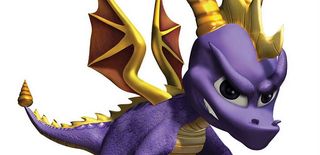7 Gaming Trends That Need To Come Back ASAP

Trends are as big a part of gaming as double-jumps and health potions. They come, they go and, sometimes, they come back again. Here’s a rundown of seven trends in gaming we’d like to see return with a quickness.
In a big-money, high risk business like gaming, it’s easy to see why trends pop up on a regular basis. One game does something that’s hugely successful so, before you know it, it seems like every other studio starts mixing that particular ingredient into their own game’s recipe. But too much of a good thing (or too many games poorly implementing said good thing) leads to a lack of interest on the part of gamers and, eventually, the trend dies.
Sometimes, though, a fad in gaming deserves a second crack at success. Maybe its first run was too short-lived or perhaps enough time has passed that we’re ready to see some old favorites make a return. Here’s a rundown of seven trends we’d like to see move to the forefront once again.

Extreme Sports
Okay, so, Tony Hawk’s Pro Skater 5 is a poor example for this particular category, so don’t call foul on extreme sports just yet. Back around the turn of the century, extreme sports games were king and, yes, that included the older Tony Hawk games. But the genre also included pretty much any mode of transportation that could be readily defined as “rad.” Snowboards, bikes, ATVs and jet skis were common focuses for extreme sports games, typically boasting in-your-face gameplay, bright colors and a heck of a lot of fun for the sake of fun. Sometimes you just want to tear down a snow-covered mountain strapped to a piece of polished wood but, sadly, there aren’t a lot of options for such hijinks in this modern age of gaming.

Splitscreen
We’ve seen a small resurgence of splitscreen gaming thanks to the rise of indie developers but, sadly, the ability to play a big shooter or racing game with the person (or three persons) sitting next to you on the couch has all but faded into history. I grew up on games like Super Bomberman, Golden Eye and Mario Kart, series that gave you the ability to taunt or yell in frustration at a person who was actually sitting in the same room as you. Personal interactions while gaming are all but extinct, and that’s a crying shame. Plus, I’ll take my brother slugging me in the arm following a big play in Madden over a total stranger calling me various horrible slurs any day of the week.
CINEMABLEND NEWSLETTER
Your Daily Blend of Entertainment News

Beat 'Em Ups
Another genre to see a slight spike on the radar due to smaller developers in the last generation, we still don’t see a lot of big-budget beat-em-ups popping up too often these days. I’d argue that games like God of War or the recently released Transformers: Devastation are solid examples of modern takes on the classic arcade formula, but it’s not like those types of games come along all that often. More importantly, and also tying into the previous item on this list, few of those games allow you to partner up with a friend and pummel hordes of enemies as a team. In an era where more and more games are striving to be taken seriously, I wouldn’t mind some mindless punching and kicking on a more regular basis.

Wacky Mascots
If you gamed through the ‘90s then you likely remember the age of the wacky mascots. Spurred on by the success of Nintendo’s Mario, just about every developer on the face of the planet was trying to create that next uuber-popular character. Crash Bandicoot, Sonic the Hedgehog, Aero the Acro-Bat, Spyro the Dragon, Ratchet and Clank, Jak and Daxter; the list goes on and on. While not every mascot-driven game was a success, these types of games seemed far more interested in being fun than telling a story, making a point or spurring on critical discussion. These characters (and their games) were typically bright, colorful and full of attitude. Nowadays, mascots are almost exclusively humorless white dudes who talk in a gravelly voice while trying to avenging their family, homeland or some such nonsense. I say it’s time for the mascots to make a comeback in a big way

Motion-controlled Games
Given its sudden rise to popularity (and almost as sudden fade into obscurity), it's understandable that many folks might not have as fond of memories attached to motion-controlled gaming as some of the other topics on this list. But anyone who spent countless visits with the family playing Wii Sports can't deny that there was something special about controlling games with arm flails, especially since it had that rare ability to make non-gamers stop and join in on the fun. Not enough developers put legitimate effort into crafting unique experiences around the technology, however, and so Wii-motes and PlayStation Move controllers appeared to be nothing more than one-trick ponies. I say we give motion-controlled games a second lease on life and, this time, make them into something with lasting appeal.

World War II Shooters
There was a very good reason gamers and developers united and said enough was enough with World War II shooters. Through the '90s and early 2000s, that was just about all there was to offer in first-person warfare. Then Call of Duty 4: Modern Warfare came along and completely rewrote the book, helping catapult the FPS genre to its current spot at the top of the heap and giving longtime fans something new and interesting to sink their teeth into. We've come full circle, though, and after a good decade of shooting terrorists in the present and not-too-distant future, it's time we return to the roots of realistic warfare and revisit those key points in history. I mean, think about it: What would a WWII shooter look like running on the PlayStation 4 and Xbox One? Couple that with a generation's worth of advancements in the genre and revisiting the second global conflict might feel like a homecoming of sorts.

Quality Assurance
Of all the wonderful things we've gained out of modern gaming, one of the drawbacks has been a distinct lack of quality assurance for a large number of games. Back in the day, you only got one chance to wow the audience and, if your game hit store shelves borked beyond recognition, the consequences could be dire. Nowadays, games arrive on a regular basis positively packed with issues. Their developers have started to treat the first couple of months on the market as free beta testing, and that's both unacceptable and disrespectful. I'm not unreasonable enough to say that games should just be perfect straight out of the box, but there have been a number of games over the years that were clearly rushed out the door with every intention of solving hefty problems with post-launch patch after post-launch patch. If that kind of repair process wasn't so easy to exploit, perhaps those shady practices would become a forgotten trend of their own.
Staff Writer for CinemaBlend.

Superman’s Nathan Fillion Is Pranking Buddy James Gunn On Set, And Their Interaction On Social Media Has Me Hyped For The DC Flick

After Jeopardy's Polarizing Masters Reveal, My Tournament Fatigue Is Stronger Than Ever (Even Though Regular Eps Have Been Kinda Meh)

32 Perfect Best Friend Pairings From Classic Children's TV Shows
Most Popular





